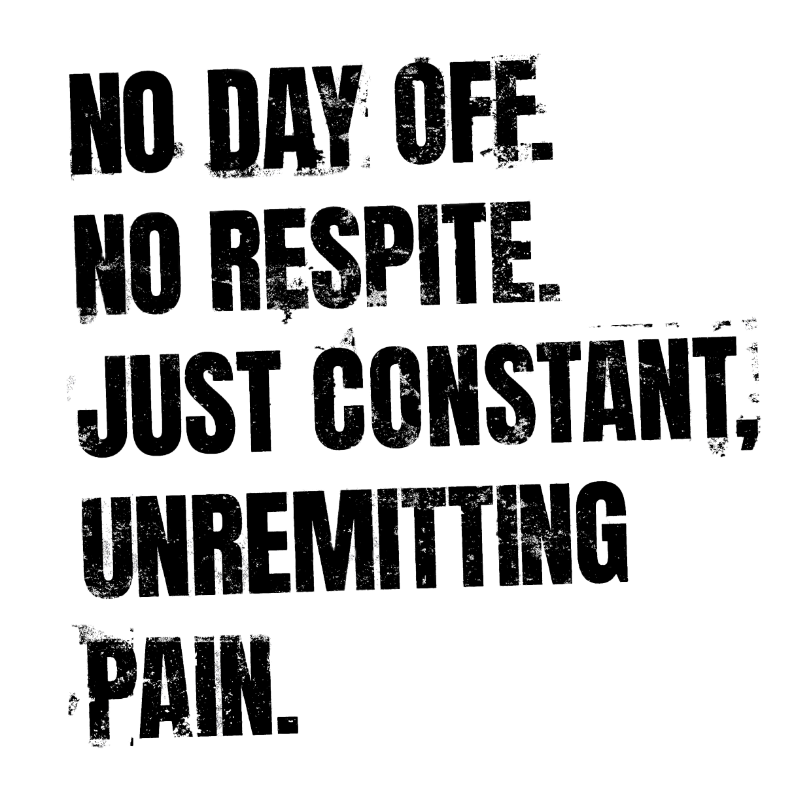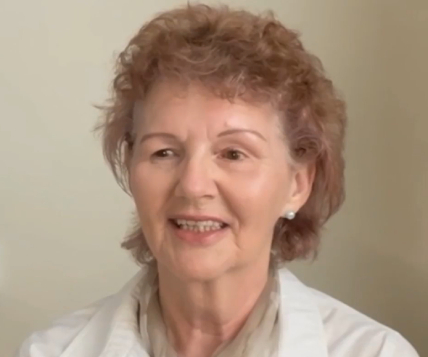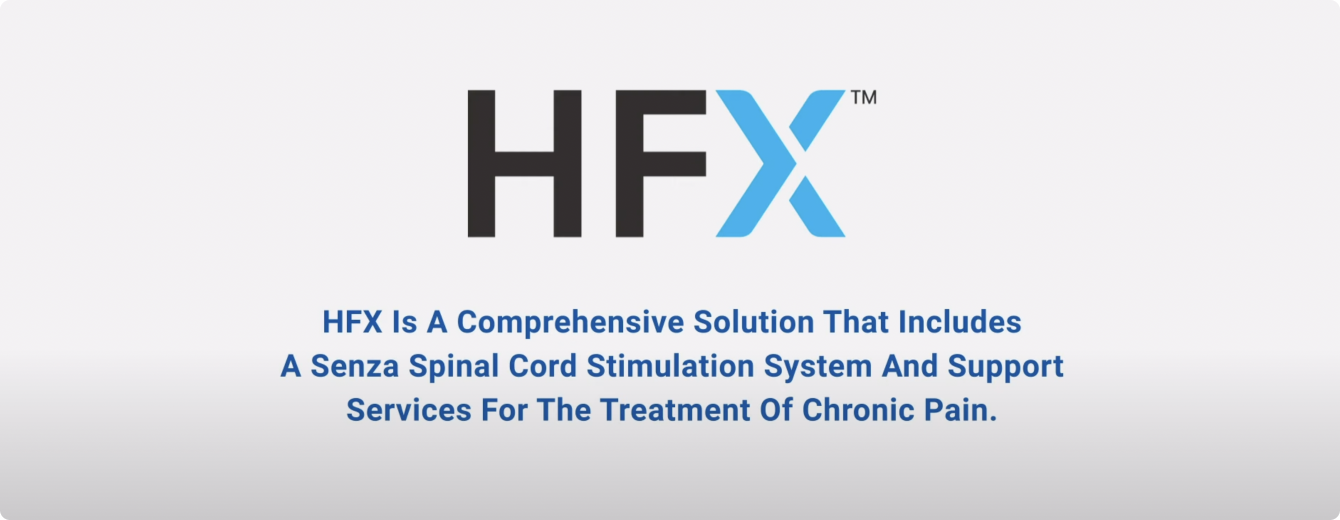
If this is your patient’s life, that’s not a life being lived to the fullest
So if you could offer them possible long-term relief from their back and leg pain, why wouldn’t you?
Patient stories: Spinal cord stimulation
Watch stories from people who are using spinal cord stimulation (SCS) to manage chronic pain.
Is there light at the end
of the tunnel from a life
of constant pain?
If your patient is suffering from persistent spinal pain syndrome type 2 – formerly known as failed back surgery syndrome (FBSS) – for 6 months or more, treating them with spinal cord stimulation (SCS) using HFX™SCS technology could offer them the relief they need to get their life back on track.1
Compared to other surgical interventions, spinal cord stimulation can be minimally invasive, patients can test the technology to make sure it suits them, and it is fully reversible.
In fact, HFX™ SCS has been specifically recommended by NICE for the treatment of residual chronic, neuropathic back and leg pain persisting after back surgery since 2019.2
HFX™ is the only technology that uses high-frequency (10 kHz) paraesthesia-free spinal cord stimulation.
-
>70% sustained from 3 months through 10 years
-
HFX™ SCS works directly on the cause of chronic pain
-
NICE recommends adoption of 10 kHz Therapy™ in the NHS
Is HFX™ Spinal Cord Stimulation the answer for your patient?
HFX™ SCS is a form of spinal cord stimulation that uses high-frequency 10 kHz SCS and involves no medication. The device is implanted into the back and sends low-level electrical signals directly into the spinal cord.
Whilst traditional low-frequency spinal cord stimulation simply masks the pain with paraesthesia, high-frequency stimulation with HFX™ actually calms down hyperactive wide dynamic range neurons – working directly on the cause of chronic pain.
HFX™ SCS has proven effectiveness and durability, with a treatment response rate of over 70% sustained from 3 months through to 10 years post-implantation,3,4 and could lead to cost savings for the NHS over time, compared to traditional SCS.
HFX™ SCS has additional advantages related to shorter and more predictable procedure times (increase OR time efficiency) and consequent health-related quality of life benefits for patients.8
Dr. Ganesan Baranidharan
Leeds Teaching Hospitals
Learn about high-frequency SCS for chronic neuropathic pain. Dr. Ganesan Baranidharan (Leeds Teaching Hospitals) explains the latest guidelines and evidence.
HFX™ SCS: more than
just pain relief
The effectiveness of HFX™ SCS extends beyond pain relief. Improvements in quality of life (QoL) and satisfaction, as well as a reduction in opioid usage, have all been reported.5–7
The case for adopting Senza spinal cord stimulation (SCS) for delivering 10 kHz therapy as a treatment option for chronic neuropathic back or leg pain after failed back surgery is supported by the evidence.
HFX SCS; making
a real difference
HFX™ is supported by evidence from randomised, controlled trials and real-world observational studies and has shown consistent superiority to standard low-frequency SCS.
Relieving the constant pain of chronic back and leg pain using unique 10 kHz HFX™ SCS therapy could significantly improve your patient’s quality of life.
Find out how your
patient can take the
first step towards
effective pain relief
Refer your patient for a minimally-invasive HFX™ trial procedure at an SCS centre today.
Please select a centre:
Timescales are approximate and not guaranteed. Please make contact with individual clinics for exact information.





